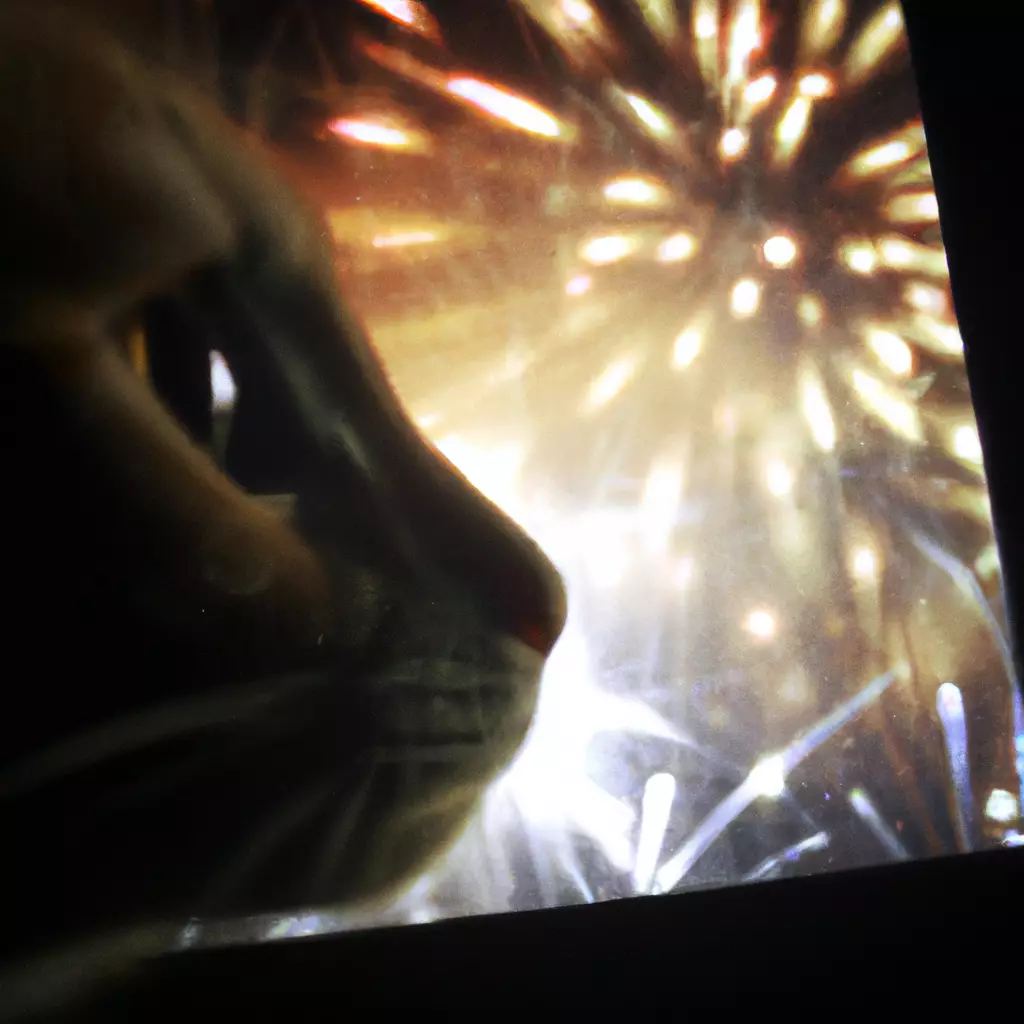As the season of fireworks approaches, many pet owners focus primarily on their dogs and cats, often overlooking smaller companions like rabbits, guinea pigs, hamsters, and rodents. While the exuberant bursts of color and sound can be thrilling for humans, they can be disorienting and terrifying for these smaller animals, whose reactions can be far less predictable. Unlike dogs and cats, small pets are often less expressive about their feelings, making it crucial for owners to stay vigilant during this season of celebration.
The upcoming festivities, including Eid-al-Adha and numerous weddings, mean that fireworks will become more common. Understanding how to protect our pets from the distress that fireworks can bring is of utmost importance. The bright flashes and loud explosions can compromise their sense of safety, triggering instinctual fear responses that could manifest in various unsettling ways. It’s essential to remember that small pets, often prey in the wild, are wired to be on constant alert for potential dangers.
Recognizing Signs of Distress in Your Pets
Spotting anxiety in small animals can be particularly challenging for pet owners. Many might dismiss subtle signs of stress, thinking their pets are merely energetic or restless. However, experts note that animals can reveal their anxiety through specific behaviors. For instance, a rabbit might stamp its hind feet, while a guinea pig may exhibit agitated movements or tremble. Other signs to look for include rapid breathing, unusual stillness, an attempt to escape their environment, changes in eating habits, or increased aggression.
A pet’s toileting habits can also change under stress, signaling discomfort or fear. Being attuned to these subtle cues is critical, as ignoring them could lead to a significant stress overload for the animal.
Practical Solutions to Alleviate Fear
Veterinary experts emphasize the importance of proactive measures to keep small pets as calm and comfortable as possible during firework season. One of the most effective strategies is to bring outdoor pets indoors when fireworks are on the horizon. This adjustment requires careful planning, particularly because an abrupt change in environment can also induce stress. Owners should consider using calming diffusers to help ease this transition, ensuring that pets are welcomed into a comforting atmosphere with soothing scents.
In preparation for firework season, it’s wise to gradually acclimate pets to indoor life before the big nights. Taking a few moments to familiarize them with shorter periods inside can minimize shock and discomfort. For small pets housed in outdoor hutches, relocating them to quieter areas, such as a garage, can make a world of difference. If indoor space is limited, alternative methods like turning hutches to face walls or using blankets to dull sound can help mitigate some of the distress associated with loud bangs and dazzling lights.
Creating a Safe Haven for Your Small Pets
To ensure small pets feel secure during fireworks, providing ample hiding spots is vital. Simple structures, such as cardboard boxes or tubes with multiple entrances, can create cozy retreats that allow pets to burrow and hide from the chaos. Surrounding these areas with deep, soft bedding will serve as an additional sound barrier, helping ease their sense of vulnerability as they tunnel in.
Inside the house, closing curtains and keeping the lights on can mask the brilliance of fireworks outside. Playing music, especially classical pieces or tunes with a rich bass, can serve as a calming backdrop to drown out the sharpness of nearby explosions. It’s essential, however, to keep the volume at a comfortable level to avoid overstimulating the pet further.
Keeping these precious companions engaged with treats or toys can serve as a distraction from the anxiety induced by fireworks. Additionally, if they are part of a bonded group, it is advised to keep them together to promote a sense of security.
When to Seek Professional Help for Your Pets
Despite the implementation of precautionary measures, some pets may still exhibit fear during the fireworks. If pet owners find their companions struggle significantly, it is advisable to consult with a veterinarian. Professionals can offer insights into behavioral strategies or, if necessary, medical intervention to ease the distress.
Animal welfare organizations like PDSA play a crucial role in providing not just veterinary services but also valuable information and guidance to pet owners navigating these challenging situations. Addressing the emotional well-being of our pets during high-stress times should be a priority, ensuring they feel loved, cared for, and safe, even amidst the chaos of celebration.


Leave a Reply